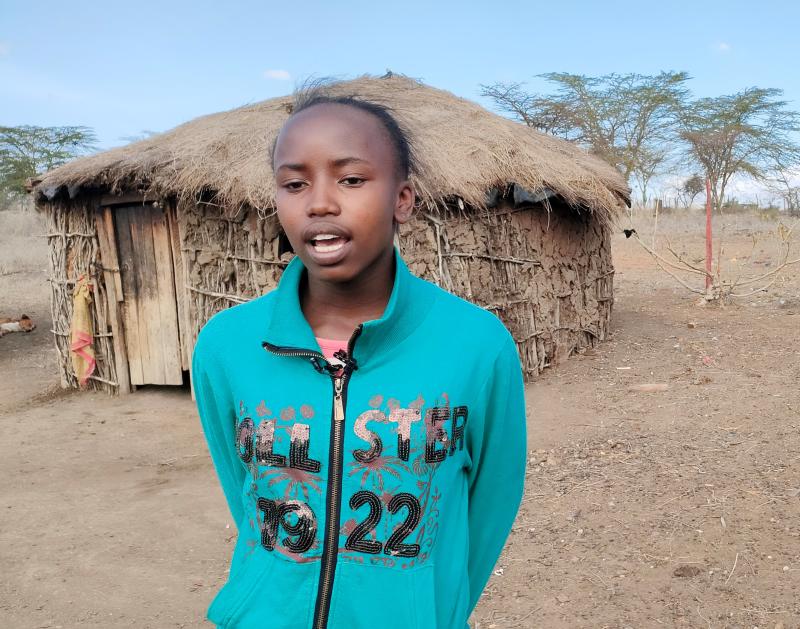Mitchell Kinya, who scored 391 marks at Segera Primary School during an interview at his home in Laikipia North Sub County [Nanjinia Wamuswa, Standard]
×
The Standard e-Paper
Join Thousands Daily

It is 6am in Kisargei village in Laikipia North sub-County, Laikipia County. Rapasi Lemaramba, 15, has just finished milking the family’s five goats. He got slightly over a litre and is now waiting for his mother to make tea.
“We are getting only one litre from five goats because of drought,” says his mother, Mrs Veronica Lemaramba, as she leaves with the milk.